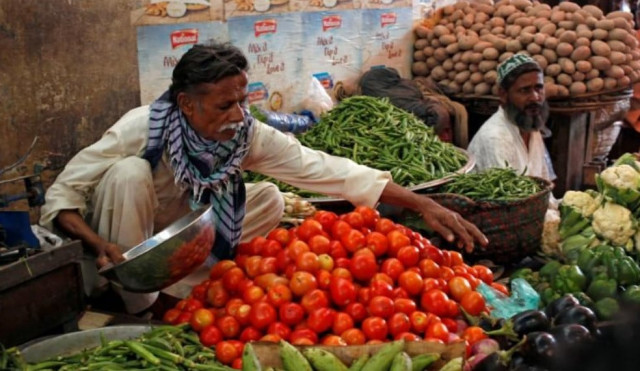‘Allocate Rs100m for R&D in fruit, vegetable sector’
Businessmen urge govt to develop new varieties to compete globally, boost exports

In a bid to meet domestic demand and boost exports, businessmen have called on the government to allocate Rs100 million towards research and development (R&D) for new varieties of fruits and vegetables. All Pakistan Fruit and Vegetable Exporters Association (PFVA), Patronin-Chief, Waheed Ahmed stressed the importance of developing new varieties through extensive R&D. “There is a dire need to get new varieties developed so as to enhance export through extensive R&D by allocating Rs100 million for this purpose,” Ahmed emphasised.
The Kinnow industry, valued at Rs130 billion, has seen a decline in exports from $220 million to $110 million, a significant 50% drop. The variety of Kinnow in Pakistan is 60 years old, whereas the global practice is to change varieties after 25 years. Ahmed explained that the existing variety is susceptible to various diseases, resulting in a reduced shelf life and an inability to withstand longer transit times of 15 to 45 days. Kinnow currently contributes 30% to the total export of fruits and vegetables with 250 factories across the country.
With the development of new varieties, the export potential of Kinnow can be boosted to $350 million within the next four years. This, in turn, would enhance the overall horticultural export of fresh tableready and processed fruits and vegetables. Sindh Abadhgar Board (SAB), Senior Vice President, Mahmood Nawaz Shah emphasised the need to encourage the horticulture industry by investing in export-related sectors. He proposed providing interest-free financing, feasibility studies, and public-private sector partnerships to attract investors. To reduce reliance on imported mushrooms, the PFVA chief advocated for the removal of sales tax on local sales of fresh, frozen, or otherwise preserved mushrooms. This move would discourage imports and save foreign exchange.
Concave Agri Services, President, Muhammad Ali Iqbal stressed the importance of public-private partnerships for developing indigenous quality seeds for horticulture. He called for controlled atmosphere facilities to meet the longlife storage requirements of perishable fruits such as cherries, peaches, plums, and apricots. The businessmen also highlighted the need to revise the high costs of PhytoSanitary Certificates, which have increased by more than 800%. They recommended subsidies for the cost of certifications, testing, and blockchain technology for the first three years, gradually reducing to 50% for the subsequent three years.
The SAB senior VP emphasised the importance of uninterrupted energy supply for the sector, as well as investment in small and medium-sized enterprises that utilise existing raw materials. Another concern raised by Ahmed was the high cost of aseptic packaging bags, which are not locally manufactured. The reliance on imports drives up costs for processing units. Additionally, he highlighted the financial benefits for growers in the case of bumper crops, which can be preserved for up to two years using aseptic bags. In order to support the local juice and fruit industries, exemptions from import duties were requested for spare parts used in pro



















COMMENTS
Comments are moderated and generally will be posted if they are on-topic and not abusive.
For more information, please see our Comments FAQ